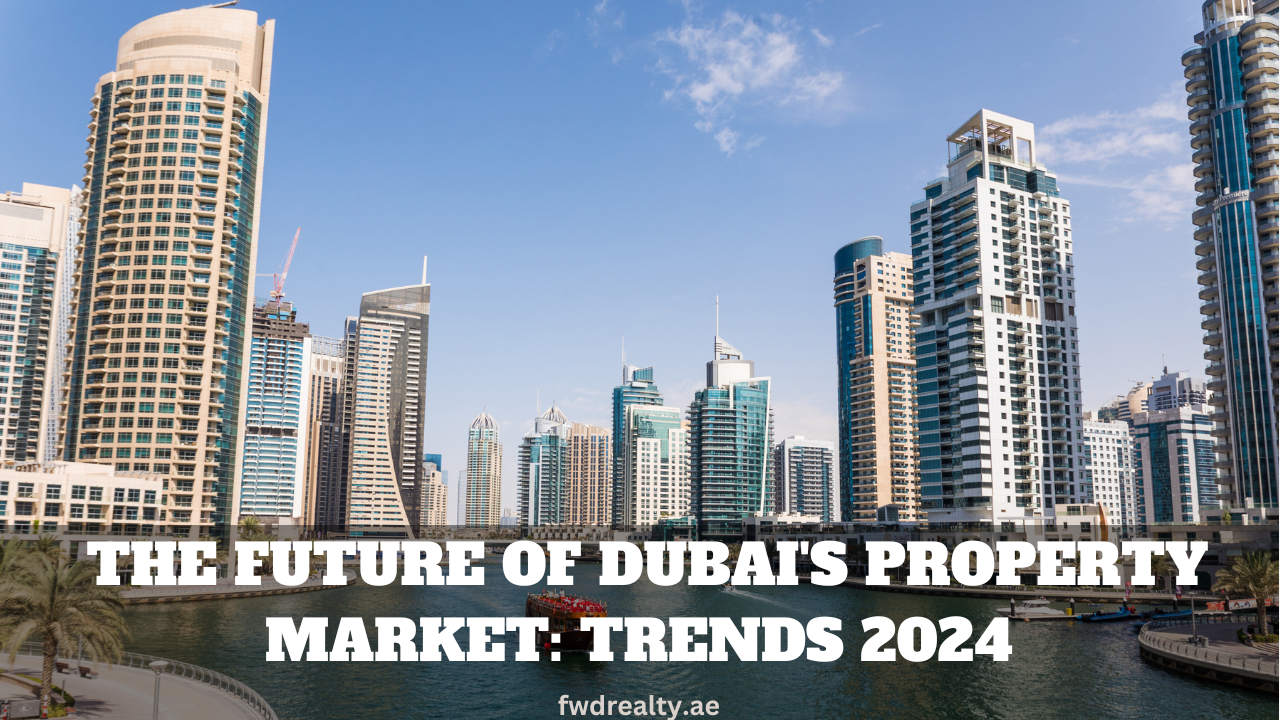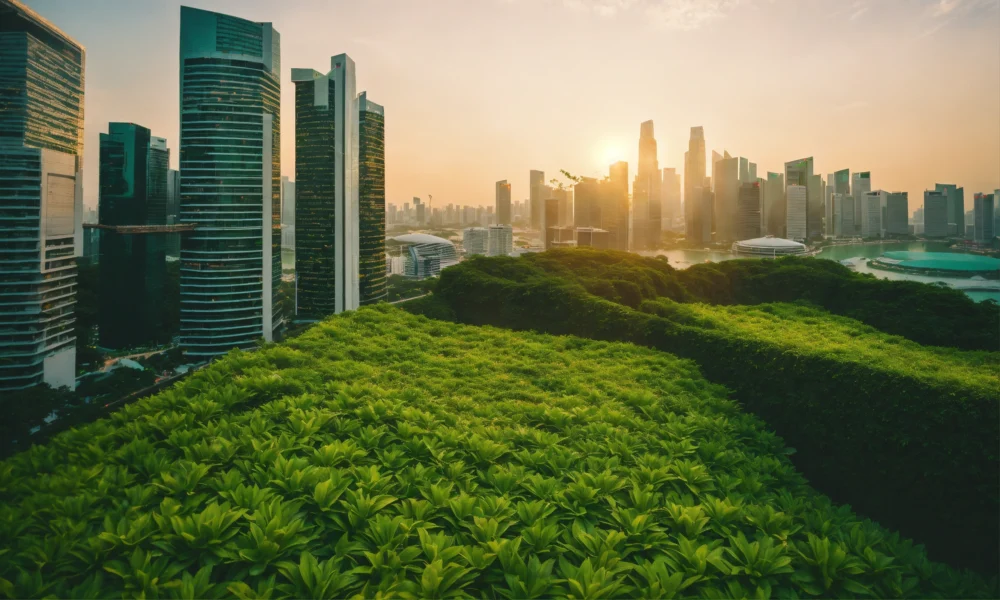
The Future of Dubai’s Property Market: Trends 2024
Dubai’s property market is a dynamic and ever-evolving landscape, reflecting the city’s ambition and global status. As we approach 2024, several trends are set to reshape the market, impacting everything from residential preferences to commercial real estate. Let’s dive into what the future holds for Dubai’s property market, and how you can stay ahead of the curve.
1. Technological Innovations Shaping the Market
Smart Cities and AI Integration
Dubai is at the forefront of smart city innovations, integrating technology to create a more efficient and connected urban environment. Smart buildings equipped with AI can optimize energy use and enhance security. Imagine living in a building where AI predicts your needs before you even realize them—this is not science fiction; it’s becoming a reality in Dubai.
PropTech Advancements
The property technology (PropTech) revolution is transforming how we interact with real estate. Augmented reality (AR) and virtual reality (VR) are making property viewings more immersive and convenient. Instead of just scrolling through photos, you can now take a virtual tour of your future home from anywhere in the world. These tools are making the property search more engaging and efficient.
Blockchain for Secure Transactions
Blockchain technology is revolutionizing property transactions, offering greater transparency and security. This decentralized system ensures that property records are tamper-proof and transactions are streamlined. It’s a game-changer for investors and buyers looking for a secure and straightforward way to handle property deals.
2. Sustainable Development and Green Building Trends

Government Initiatives
Dubai is committed to sustainability, with the government rolling out ambitious green building regulations and initiatives. The Dubai Clean Energy Strategy aims to make the city a global center for clean energy and green technology. New developments are increasingly incorporating eco-friendly practices to align with these goals.
Green Building Practices
Green building is no longer just a trend but a necessity in Dubai’s property market. Developers are adopting energy-efficient technologies, such as solar panels and smart climate control systems. Buildings are now designed to reduce their carbon footprint, using sustainable materials and practices that benefit both the environment and occupants.
Case Studies of Recent Green Developments
Recent green developments in Dubai, like the Sustainable City and the Dubai Hills Estate, showcase how sustainability and luxury can go hand in hand. These projects are setting new standards for eco-friendly living and proving that green buildings can also be high-end and comfortable.
3. Evolving Residential Preferences
Urban vs. Suburban Living
The choice between urban and suburban living is becoming more pronounced in Dubai. Central areas remain popular for their convenience and amenities, but the appeal of quieter, spacious suburban areas is growing, especially with more people working remotely. This shift is influencing new residential developments and housing options.
Luxury vs. Affordable Housing
Dubai’s property market continues to cater to both ends of the spectrum. While luxury properties offer opulence and exclusivity, there is also a growing focus on affordable housing. Developers are increasingly creating projects that balance high-quality living with more accessible price points, addressing the diverse needs of the market.
Impact of Remote Work
Remote work is reshaping residential preferences, with many seeking homes that offer dedicated office space and better work-life balance. This trend is driving demand for properties with additional rooms and flexible layouts, reflecting the changing nature of work and home life.
4. Market Dynamics and Economic Influences
Impact of Global Economic Conditions
Global economic conditions significantly affect Dubai’s property market. Fluctuations in oil prices, international trade policies, and global economic stability can influence property demand and investment flows. Staying informed about these global factors can help you anticipate market shifts.
Local Economic Drivers
Dubai’s local economic drivers include major projects like the Expo 2020 legacy developments and the growing tourism sector. These initiatives bring investment and infrastructure improvements, boosting the property market and creating new opportunities for investors and residents alike.
Predictions for 2024
Looking ahead to 2024, Dubai’s property market is expected to continue evolving with a focus on sustainability, technological integration, and diversified housing options. Economic stability and ongoing development projects will play crucial roles in shaping the market’s trajectory.
5. Shifts in Investment Strategies
International vs. Local Investors
Investment patterns in Dubai are shifting, with increasing interest from local investors alongside a steady influx of international buyers. Local investors are exploring new opportunities within the city, while international buyers continue to see Dubai as a prime location for property investment.
Emerging Investment Hotspots
New areas in Dubai are emerging as investment hotspots, offering promising opportunities for savvy investors. Neighborhoods like Dubai Creek Harbour and the Dubai Marina are gaining traction due to their development potential and desirable locations. These hotspots provide exciting prospects for those looking to invest in Dubai’s evolving property landscape.
Investment Trends and Strategies
Investment strategies are evolving, with a growing focus on long-term value and sustainability. Investors are looking beyond short-term gains and considering factors like environmental impact and technological advancements. Staying ahead of these trends can give you a competitive edge in Dubai’s property market.
6. The Role of Demographic Changes
Population Growth and Urbanization
Dubai’s population continues to grow, driving demand for new housing and infrastructure. Urbanisation is reshaping the city, with new developments catering to a diverse and expanding population. Understanding these demographic shifts can help you anticipate market needs and opportunities.
Changing Demographics
Different age groups and family structures are influencing property preferences. Young professionals may prioritise trendy, urban living spaces, while families might seek larger homes with amenities. These changing demographics are driving developers to create more tailored and versatile housing options.
Impact on Housing Demand
As Dubai’s population evolves, so does the demand for housing. Developers are responding with a range of options, from luxury apartments to family-friendly communities. Staying aware of these trends can help you make informed decisions in the property market.
7. Regulatory and Policy Changes
Recent and Upcoming Regulations
Dubai’s property market is influenced by a range of regulations and policies. Recent changes include new ownership laws and updated property transaction processes. Keeping up with these regulations is crucial for navigating the market effectively.
Government Policies and Impact
Government policies, such as incentives for green building and changes in property taxes, are shaping the market. These policies can impact property values and investment returns, so understanding their implications is key to making informed decisions.
Legal and Tax Considerations
Changes in property laws and taxation can affect both buyers and investors. Staying informed about legal and tax considerations ensures you can navigate the market smoothly and take advantage of any new opportunities or incentives.
8. The Future of Commercial Real Estate
Shifts in Commercial Property Demand
The demand for commercial real estate is evolving, influenced by trends like remote work and e-commerce. Office spaces, retail locations, and hospitality properties are all experiencing shifts in demand. Understanding these changes can help you identify new investment opportunities.
Innovations in Commercial Spaces
Commercial spaces are adapting to new needs, with innovations like flexible office layouts and experiential retail environments. These changes are designed to meet the demands of modern businesses and consumers, offering new possibilities for commercial real estate.
Adapting to New Business Models
Businesses are adjusting their space requirements to fit new models, such as hybrid work setups and online retail. This adaptation is influencing the design and function of commercial properties, creating new trends and opportunities in the market.
Conclusion
As we look to the future, Dubai’s property market is poised for exciting changes. From technological advancements and sustainable development to evolving residential preferences and investment strategies, the trends of 2024 are shaping a dynamic landscape. Staying informed and adaptable will be key to navigating this vibrant market and seizing new opportunities.
By understanding these trends, you can better anticipate how Dubai’s property market will evolve and make more informed decisions. Whether you’re an investor, resident, or industry professional, keeping an eye on these developments will help you stay ahead of the curve.